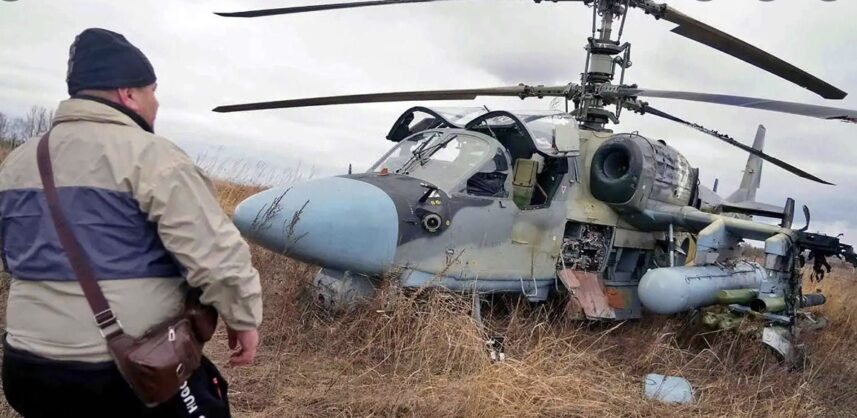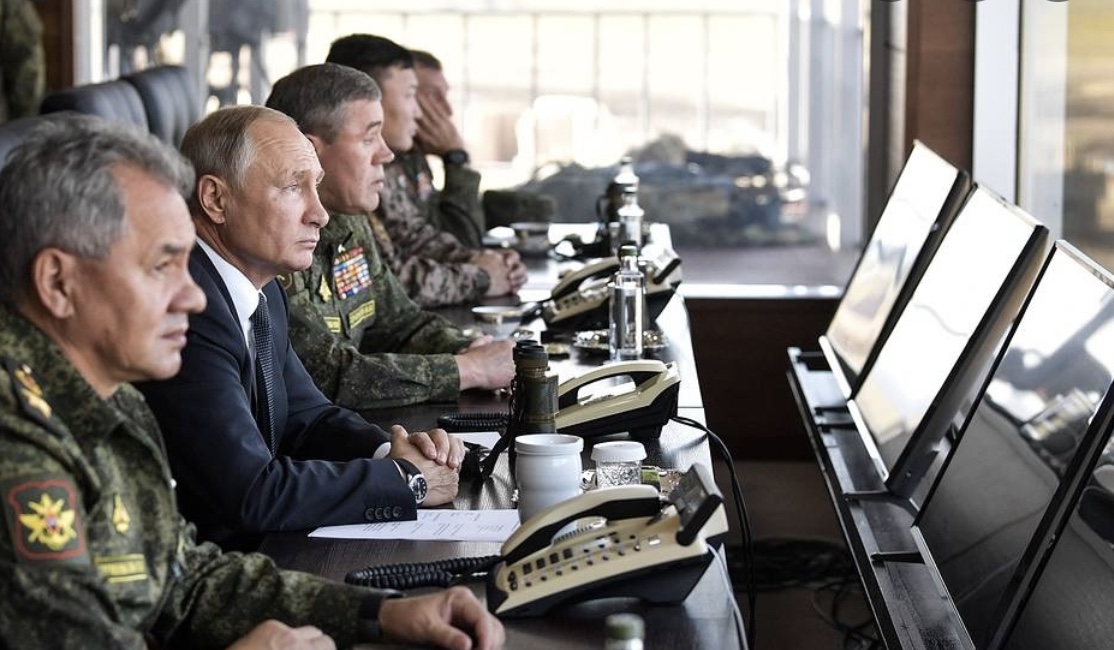IERI (Yesterday) Vladimir Putin in Koubinka, a town near Moscow, during an international arms fair he boasted those in possession of the Russian army. Although some Western reports pointed out that Russia revealed its weaknesses during the war in Ukraine, the Russian president promised his allies "the most modern infantry weapons, armored vehicles, artillery, combat aviation and drones ".
Putin justified that Russian weapons are appreciated in the world for their quality, their high efficiency and for the fact that "they have been used on several occasions in real combat conditions". The strongman of the Kremlin said that Russia "has many allies"And explicitly mentioned the"bonds of trust"Which maintains in the countries ofLatin america,Asia and Africa. "These are states that do not waver in the face of alleged [American] hegemony. Their leaders showed a very strong character".
Putin also welcomed the training of thousands of foreign military in Russia, which "it opens up great prospects for considering our schools as their alma mater".
At the end of his speech, the Russian president invited his allies to participate in military exercises in Moscow. In this context, the official North Korean agency also released a congratulatory letter from Putin to Kim Jon Un on the occasion of 74th anniversary of the liberation. In the letter, North Korea is urged to strengthen cooperation ties with Russia.
Between 2017 and 2021, Russia became the second largest arms exporter in the world, with a market share of 19%, according to data released by the Stockholm Institute (Sipri). It should be noted that these figures have declined in recent years. Western sanctions against Moscow now threaten to penalize those sales by blocking the logistics and financial circuits. Despite these difficulties, the director of the Russian federal agency for arms cooperation, Dimitri Chougaev, he told the agency Monday Ria-Novosti that Russia had signed arms contracts worth 16.000 million in 2022 and that it had orders worth 57.000 million. Putin's statements contrast with the strategy followed by the Russian army in Ukraine. In a first phase, Russian troops entered through the eastern, northern and southern borders with the aim of converging in Kiev in a few days.
However, serious errors in the logistical planning of the operation and in the action of the drones left his troops stranded on the ground, in particular the column of armored cars advancing from the north on the Ukrainian capital. After this setback, Russia concentrated its troops in the east of the country with the intention of concentrating its attacks in the eastern Donbass region. Yesterday Putin declared that his troops are advancing "step by step" in the liberation of this region.
Ukrainian defense sources replied that the Russian attacks had been repelled in several places. In the war practiced in recent months, Russia has shown a clear superiority in long-range artillery and air control. However, Moscow practices a war based on the systematic bombing of residential areas and involves the absolute destruction of the cities which it then takes control of. This strategy was also practiced by the Russian military in its involvement in northern Syria.
Moscow builds its weapons with Western components, despite the sanctions
An independent investigation found that hundreds of electronic components in Russian weapons come from Western industries.
The weapons the Russians use to bomb Ukraine need a guidance system, RAM and more to achieve their goal.
Russia is estimated to have fired more than 3.650 of these bombs at Ukraine during the war so far, including cruise missiles 9M727 - launched from the ground - e KH-101 - launched from fighter planes, each carrying more than 400 kilos of explosive charge.
Both missiles use up to 31 electronic components manufactured by Western companies, most of them from the United States. The investigations of the Royal United Services Institute (RUSI), of London, and of the agency Reuters with the collaboration of the Russian independent portal Important Stories.
RUSI had access to 27 Russian weapons and weapon systems - or their remnants - found on the battlefields. More than 450 electronic components manufactured outside of Russia have been found in these weapons, up to 70% by US companies and the rest by Japan, Taiwan, Switzerland, the Netherlands, Germany, China, South Korea, the United Kingdom and Austria.
In some cases they are products manufactured in the 80's, while others are much more modern. On the day of the invasion of Ukraine, on February 24, the White House announced that the United States and its allies would impose "wide restrictions on semiconductors, telecommunications, lasers, sensors, encryption and navigation systems, avionics ... ", and they would have "Cut off Russia from access to cutting-edge technology".
Up to 37 countries have joined the trade bloc that actually began in 2014 with the Russian annexation of Crimea. Investigators found that the flow of these materials into Russia, however, has not stopped. According to Reuters, more than 15.000 product shipments from companies including Texas Instruments, Intel, Analog Devices, Infineon e AMD they arrived in Russia from the day of the invasion until the end of May, in some cases through third parties.
When to many of these companies like Texas Instruments o Analog DevicesAsked how their chips got into Russian missiles, the answers were as vague as they were elusive.
It is certain, however, that some shipments were already in transit when the block was announced, even if until last May the flow of components to Russia was never blocked or restricted.
Many of these electronic components should be subject to control based on their purpose of use, the problem is that some of them fall into the category of so-called dual use-chip (usable for missiles and microwave ovens).
In general, in fact, integrated circuits have both civil and military applications. Many components are sold to Russia through distributors in Asia, such as Hong Kong, who transfer the material directly to the Russian military or to companies working on its behalf.
In this way a Russian company would have imported in March (with the war already underway) material from Texas Instruments for a value of $ 600.000 (to understand the size of the order it is specified that the microchips individually cost only a handful of dollars). To avoid further problems, President Vladimir Putin signed a law in June that allows the importation of electronic products without the approval of the patent holder.
The Russians are believed to only rely on Western technology for some of their weapon systems because they don't manufacture those components, but that doesn't mean they buy indiscriminately from any supplier. The Reuters investigation indicates that even the most common chips are vetted and certified by a technological institute located near Moscow, which indicates to companies or purchasing bodies what can and cannot be imported, in order to avoid electronic espionage.
The institute encourages Russian manufacturers to replace Western technology with domestic products, but this has not been the case in recent years.
A 2017 document seen by investigators revealed that of the 921 foreign components required for a communications jamming system intended to be installed on helicopters, only 242 could be manufactured in Russia. Russia has tried to circumvent Western restrictions, both with its own production and with suppliers in China o India, through shell companies as intermediaries and with false certifications on the nature of the use of materials - certifying their civil rather than military use.

The US Department of Homeland Security believes that “These global networks can protect US exporters by making it more difficult for investigators to track them down". The argument referred to Reuters is supported by a former federal prosecutor, Daniel Silver, who dealt with the case of Alexander Fishenko, which, with dual American and Russian nationality, attempted in 2012 to sell electronic material to Moscow to be applied in radar and weapon guidance systems.
RUSI researchers say tightening export restrictions could make it more difficult for Russia to replenish its stocks, as well as prevent Western companies from producing electronics deemed "sensitive" in countries that support Russia. RUSI believes Russia may therefore have problems replacing equipment, given its domestic limitation of producing critical components. To all this is added the current global semiconductor crisis which also affects the West and which could definitively compromise the Russian ability to continue to support military efforts on the Ukrainian front.
